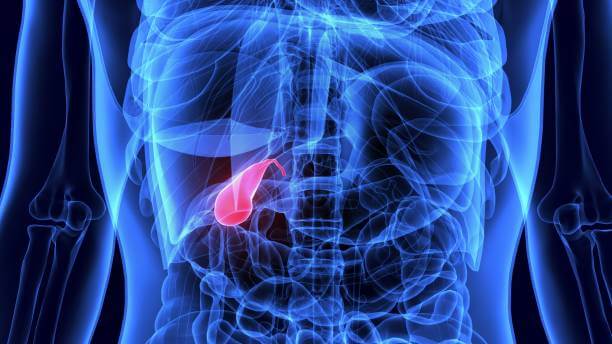Are you among the 20 million Americans who suffer from gallbladder disease? If you are looking for non-surgical gallbladder treatment, then you’ve come to the right place.
Your gallbladder has one job; to store and release the fluid necessary to properly digest fatty foods. When you don’t eat fatty foods or in moderation, this organ doesn’t have much responsibility.
Gallstones can form in the gallbladder for several reasons, but often, lifestyle choices play a significant role. Gallbladder attacks can be extremely agonizing and painful.
Avoiding fatty foods may help prevent them from forming; however, optimizing your diet and lifestyle is the most effective way to minimize your chances of developing gallstones or causing a gallbladder attack.
Symptoms of Gallbladder Attack
Cholecystitis (gallbladder inflammation) and cholestasis (gallstones) are the two most common gallbladder disorders.
While there are no gallstones symptoms until one of them becomes lodged in a bile duct and causes a blockage, the most common sign of acute gallstone blockage is a sudden, sharp pain in the upper right part of the abdomen.
The following symptoms are common in those with gallstones:
- Pain in the abdomen
- Nausea
- Vomiting
- Jaundice
- Loss of appetite
- Fever
Consult your doctor if you experience any of the symptoms above.
Foods to Avoid If You Have a Gallbladder Attack
Many foods to avoid when searching for gallstone remedies; however, gallstone diets do not leave you starving.
Although gallstones won’t disappear just by changing your diet, a healthy diet balanced in nutrients and low in cholesterol might ease your symptoms. Dietary guidelines recommend lowering your fat intake, so you should avoid:
- high-fat foods
- fried foods
- creamy soups
- pizza
- oil
- alcohol
- Chocolate
Fiber-rich foods, such as cereal, nuts, whole-grain bread, and many vegetables can also cause bloating and gas, making patients uncomfortable.
Risk factors for Gallbladder Attack
The prevalence of gallstones is higher among women than among men. Taking hormonal birth control or using hormone replacement therapy increases the risk of gallstones in women. Other risk factors include:
- Genetic(family history of gallbladder problem)
- obesity
- diabetes
- lactose intolerance
- coronary artery disease
- age
Some medications can also increase your risk of developing gallstones.
How to Prevent a Gallbladder Attack
The Gallbladder Diet is a modified eating program that consists of foods that help prevent gallstone formation and reduce the size of existing gallstones.
It is crucial to consume a low-fat diet that includes a variety of fruits and vegetables, whole grains, and low-fat dairy products because cholesterol is soluble in fat; thus, fat-free diets have a beneficial effect on cholesterol levels.
A low-fat diet also decreases the number of bile salts that the liver must excrete. Reducing these highly irritating compounds will diminish the risk of forming gallstones. For an effective diet plan, you should practice the following:
- do not overeat and avoid refined carbohydrates, which include sugar.
- consume more polyunsaturated fats and avoid trans or saturated fat
- Eat lean meats in moderation
- Exercise regularly if possible
- Practice flushing by drinking at least 6-8 glasses of water each day
- Try to lose weight if obese slowly
If you experience an acute gallbladder problem, your doctor may recommend a surgical procedure to remove it to improve health and quality of life. Bile can still be made by your liver and transported directly to the small intestine for digestion.
Before gallbladder removal, you must follow a liquid diet for up to a week. The diet can include water, apple juice, chicken broth, and tea.
Despite the limitations, it is a diet that lowers complications and risks following surgery, even though it may not be an ideal meal for a recovering patient.
Conclusion
If you are suffering from gallbladder disease, it may be good to see a dietician or nutritionist help formulate a good gallstone diet. Gallbladder problems can be life-threatening if not properly diagnosed and treated.
Suppose you consistently follow your doctor’s recommendation. In that case, ultimately, you may have a healthy gallbladder that will benefit your overall health and keep your whole body more beneficial in the long run.


